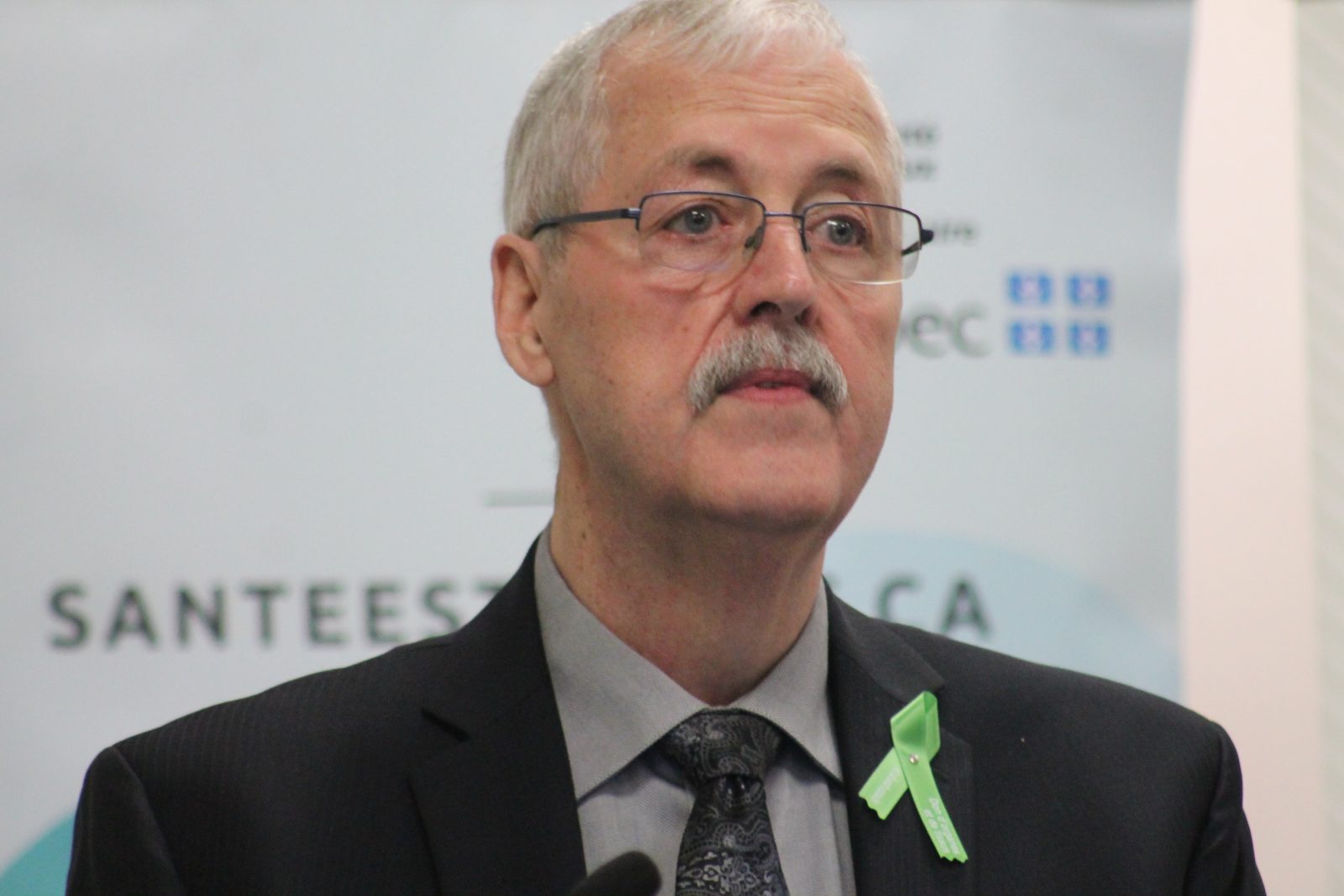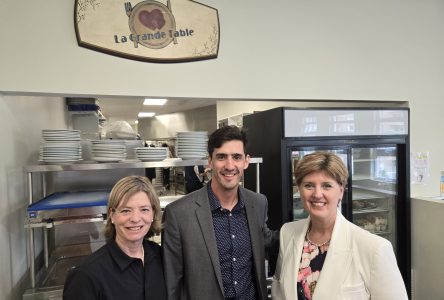In recognition of national organ and tissue donor awareness week, which takes place every year from April 22 to the 28, the CIUSSS de L’Estrie – CHUS hosted a gathering of several organ donation recipients and families of donors on Wednesday in an effort to encourage more people to become donors. “People need to ask themselves the question, do I want to be a donor?” said Annie Chouinard, a nurse specialized in organ and tissue donation at the regional healthcare institution. “Then they need to talk to their family about that choice because, ultimately, it is the family that decides.” According to Madelaine Ducharme, Coordinator of Intensive Care, Trauma Care and Organ Donation, 63 per cent of families in the Eastern Townships that refused to donate a family member’s organs in 2017 did so because they were not sure of their loved one’s wishes. Chouinard added to that the fact that organ and tissue donation are still widely misunderstood. As a part of not talking about the idea of being a donor, she pointed out that people choose not to because they think they do not qualify because of age or some other condition. “The oldest donor in Quebec was 88,” she said, “and the oldest in Canada was 92.” The average age, the nurse explained, is 53, and people can be organ or tissue donors even if they have active cancers, disbetes, or other serious health concerns. Ultimately, she said, it is better to ask than assume you don’t qualify, as the doctors will determine viability. “Organ donation works, I am living proof,” said Former Sherbrooke Police Chief Michel Carpentier, who spoke to his experience of receiving a liver transplant 15 years ago. “I remember the capital H hope I had for a person who would make the decision to be a donor,” he said, describing the experience as one of shock, incomprehension, and the powerlessness of waiting. Carpentier compared being on the donor list to being in a lottery where instead of winning money, you win the organ you need to live. “The way that this lottery works is that need to have all six numbers exactly right or you get nothing,” he said. In this case the numbers are 1: get on the waiting list, 2: a donor signs their card, 3: that donor tells their family, 4: the medical staff learn the proper procedures and identify a potential donor, 5: the medical staff discuss donation with the family and all necessary steps are taken to prepare the donor, and 6: the family respects the donor’s will. “I can’t help but think of all the people who have died waiting on a donor,” the retired police officer said. “I can’t help but think of the people who are still waiting.” See full story in the Thursday, April 26th edition of The Record.
National organ and tissue donor awareness week marked in Sherbrooke
By Gordon Lambie






